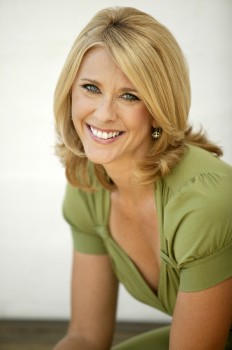Fake it ’til you make it… as a TV presenter
 In a feature that first appeared in Encore, Tracey Spicer tells us how to make it as a TV presenter.
In a feature that first appeared in Encore, Tracey Spicer tells us how to make it as a TV presenter.
So, what does a presenter do?
Most people would say, ‘not much’. It’s certainly not hard labour. But there are specific skills involved. It’s like the duck sitting calmly on the pond, with its feet flapping furiously underwater. Put simply, a presenter is a professional communicator who conveys information, or entertainment, to the audience.
What skills do you need to be good at the job?


I still remember watching Sandra Sully as the devastation was unfolding in New York on September 11, 2001.
It’s funny…everyone thinks the presenter has the easy job – they rock up 5 minutes before, leave straight after and all is well in the world. As much as it may be an “easy” job (as Tracey points out, not labor intensive), it’s also a job that not everyone can do.
And most presenters I’ve come across are also very involved in the production process to some degree, or in radio, have other jobs they have to do as well.
I love Trace – after meeting her at a function last week, I can confirm that she is as warm and quick witted in person as she appears on screen.
I know a few presenters here in the UK. . . . Watching them ‘switch on’ their on air/screen personalities in a totally trans-formative way is utterly fascinating.
The same performance skills apply to other professions as well and I can confirm it takes a lot of down-time to restore the presenter batteries.
@ James, comment 1:
https://www.youtube.com/watch?v=PVTY7i2o70w
I always liked Tracey too. I think the most difficult thing for a newsreader is to be tolerable everynight for the whole country/city. You need to have wide appeal and no annoying traits, plus be seemingly non partisan in tone and content – not as easy as you think!
As someone who works in TV news, i can tell you that if Tracey researches and writes *anything* then she is a rare breed of news presenter.
Hi there,
Thanks for all of your comments! Michelle, believe it or not, at Sky News we research all of our interviews and ad lib the questions. I know some old-fashioned newsrooms are different. Obviously journalists write their own scripts and producers pen the intros. But when it comes to live, breaking news, the anchor has to think on his/her feet. Fortunately, things have changed. We’re not just autocue readers any more. It’s a good thing.